 NEWS: Changes loom for lowering S.C. drug prices
NEWS: Changes loom for lowering S.C. drug prices
BRIEFS: Voters may finally vote with climate in mind, CofC prof says
COMMENTARY, Brack: Churches can lead the way in racial healing
SPOTLIGHT: Charter Communications
MY TURN, Benjamin: 10 rules for winning the S.C. Democratic primary
FEEDBACK: Readers chime in on new voting machines
MYSTERY PHOTO: Reaching
S.C. ENCYCLOPEDIA: Eight Box Law
NEWSNEWS: Changes loom for lowering S.C. drug prices

By Lindsay Street, Statehouse correspondent | A pharmacist in South Carolina can be penalized for telling a patient that paying cash for his or her drugs may be cheaper than the copay.
That will change starting in 2021 as South Carolina has joined the majority of states looking to curb the high cost of life-saving medicines like insulin. The state Department of Insurance will begin regulating drug administrators for health plans, but advocates say more work can be done in the Palmetto State.
“The issue of prescription drug costs is that they have gone up so much that people literally cannot afford to get their prescriptions,” AARP State Director Teresa Arnold told Statehouse Report.
Craig Burridge, CEO of S.C. Pharmacy Association, said South Carolina is caught up in a national crisis.
Whether any additional measures will be considered by lawmakers is hard to tell. Several Republicans who work on medical affairs and budgets related to Medicaid and employee plans did not return phone calls seeking comment.
But House Medical, Military, Public and Municipal Affairs Committee Chair Leon Howard, D-Richland, said that while lowering prescription “is very important” and he is supportive of lowering prescription drug costs, he was not aware of any pending legislation for the 2020 session.
“South Carolina is in a health care crisis as it relates to prescription drugs,” Howard said. He added that he is working toward other initiatives that could help offset other expenses, especially for seniors. “I want to work toward seniors never have to choose between something and their medicine.”
In the works
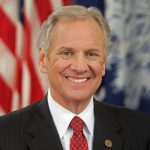
Gov. Henry McMaster this year signed into law a measure that prohibits pharmacy benefits managers from penalizing pharmacists who tell patients about lower-cost options.
Burridge described pharmacy benefits managers as “middle men.” The American Pharmacists Association says the managers are “primarily responsible for developing and maintaining the formulary, contracting with pharmacies, negotiating discounts and rebates with drug manufacturers, and processing and paying prescription drug claims.”
The S.C. Department of Insurance will work to develop a regulatory framework prior to implementation in 2021. Director Ray Farmer said the agency is formulating a plan for regulating the sector. He said it is the first time the state will regulate pharmacy benefits managers.
Burridge said this is a step in the right direction.
“At least there is someone they have to answer to now,” Burridge said. “And now the pharmacists can educate the patient without being thrown out of the network.”
- INSIDER TIP: Want to save on prescription drugs now? S.C. Pharmacy Association CEO Craig Burridge said to ask your pharmacist if there is a cheaper option.
Managers have been fingered by pharmacists and lawmakers as a primary cause of rising drug costs. More than 30 states nationwide have enacted laws prohibiting managers from preventing disclosure of lower-cost options by pharmacists. The Trump administration has also set pharmacy benefits managers in its sights, but only for Medicaid and Medicare drug prices, not in the private sector.
The 2019 law in South Carolina marks the second time in a decade that state lawmakers have sought to rein in pharmacy benefits managers. In 2013, lawmakers set up an appeals process for pharmacies undergoing an audit at the behest of benefits managers.
In the last few years, the state’s benefits plan and Medicaid have also pushed for more transparency through contracts with the managers, Burridge said.
Beyond implementing the current law, Farmer said his agency may have recommendations at some point on drug costs “but we’re not there yet.”
Burridge said the state needs to let the current pharmacy benefit manager legislation get “fully implemented” before looking at other measures. He also said focusing pharmacy benefits managers is the right call, but other states have done more. Nonprofits like AARP say more action is needed.
While AARP pushes regulation and transparency for pharmacy benefits managers, Arnold said that thinking such managers were the root of the problem “would stretch the imagination.”
Importing from Canada
 AARP is pushing prescription drug costs to be a part of the 2020 presidential election cycle conversation. But the advocacy group for seniors is also looking at state and congressional measures.
AARP is pushing prescription drug costs to be a part of the 2020 presidential election cycle conversation. But the advocacy group for seniors is also looking at state and congressional measures.
One policy step the group says could work — and has been passed in other states — is importing drugs from foreign nations that follow similar drug regulations to the United States. Florida Gov. Ron DeSantis recently signed a bill into law that would allow the state to import prescription drugs from Canada.
Arnold said her group is planning to meet with South Carolina lawmakers prior to the start of the 2020 session on similar legislation.
“It won’t just save South Carolina citizens’ lives. It will reduce costs in our budget because the state pays for drugs through the state health plan, through (Department of) Corrections and through Medicaid,” she said.
Burridge questioned the safety of such imports.
Other actions being pushed by AARP:
- Enacting rate ceilings for brand-name drugs. Bills have been introduced in 14 states this year; and,
- Leveraging buying power of the state by pushing bulk purchasing for state-run healthcare. So far, California is the only state working on a proposal using bulk purchasing.
“There’s such a bipartisan desire now to see the drug prices lower,” Arnold said. “It is going to have to occur in state legislatures and in Congress and with the president.”
- Have a comment? Send to: feedback@statehousereport.com
Voters may finally vote with climate in mind, CofC prof says

By Lindsay Street, Statehouse correspondent | The author of a new book exploring environmental policy from local governments to the federal level says climate change is becoming a “mobilizing issue” for 2020 voters.
“People are starting to actually vote (on climate change issues),” Matt Nowlin told Statehouse Report. “Will environmental issues become something that people actually vote on? Because it hasn’t historically been the case.”
Nowlin recently published Environmental Policymaking in an Era of Climate Change, a book he said he hopes everyone from political science students to 2020 presidential candidates will read. He called it a place to start in addressing “one of the greatest challenges we have ever faced.”
The book explores the existing and dynamic “green state,” the network of rules and regulations that exist from the federal government all the way down to local governments. He said since 2016, more states have been stepping up on climate change adaptation and mitigation strategies.
“There’s a lot of precedent for states to take a leadership role,” he said. “Since the 2016 election, it has been the states and local governments where the action is on climate.”
Nowlin cited California as a leader in many environmental issues, and said New York state is looking at similar climate-change policies.
While South Carolina has not enacted sweeping climate-change policies at the state level, Nowlin said there are a few bright spots in the state, including the new South Carolina Floodwater Commission.
“That’s exactly the kind of thing we should be doing,” he said. “The question then comes with the follow through and the pace.”
He also highlighted the work being done by municipalities like Charleston on adapting to rising sea levels.
“The Charleston sea level rise strategy is, in terms of what’s happening in South Carolina, one of the strongest plans being done,” he said.
Nowlin said South Carolina could better mitigate climate change by enacting renewable energy mandates as part of the state’s energy portfolio. He said offshore wind energy should play a big factor.
Nowlin said he hopes his book offers answers on “why action is difficult but, on a hopeful note, that action is still possible because there are multiple ways and multiple levels of government in which people can and should engage.”
In other news:
![]() Drinking water threatened. The State Rural Infrastructure Authority this week told lawmakers the state needs to spend $2 billion to repair aging drinking water pipes that threaten public health. Read more.
Drinking water threatened. The State Rural Infrastructure Authority this week told lawmakers the state needs to spend $2 billion to repair aging drinking water pipes that threaten public health. Read more.
Special session gavels in June 25. State lawmakers on Tuesday will reconvene to address gubernatorial vetoes. There aren’t many vetoes to address, and most are small. See our previous coverage here.
Racial justice group takes over July 10 rally at Statehouse. For the last three years, July 10 has been a day for Confederate flag supporters to rally at the Statehouse. But four years after the Confederate flag was removed from its grounds, the Statehouse will be home to a rally of Columbia group Showing Up for Racial Justice. Read more.
Public records access survey released. How much does it cost to access public records at 35 state agencies and how long does it take?Gov. Henry McMaster and S.C. Inspector General Brian Lamkin this week released a survey that explored those questions. McMaster issued an executive order, directing 18 agencies to strengthen their public records practices in regards to the survey. See the survey results here.
House Speaker vows more education focus in 2020. House Speaker Jay Lucas, R-Hartsville, spoke with multiple media outlets this week and said that while his major education overhaul was stalled in 2019, he is planning more legislation in 2020, including expanding pre-kindergarten schooling in rural areas. Read more.
2020 candidate calendar
 Throughout the campaign season, we are working to keep South Carolina informed of candidate events in the state. Have an event you want us to know about? Email us at 2020news@statehousereport.com. In the coming days:
Throughout the campaign season, we are working to keep South Carolina informed of candidate events in the state. Have an event you want us to know about? Email us at 2020news@statehousereport.com. In the coming days:
- Clyburn’s World Famous Fish Fry: Many of the Democrats vying for the presidential nomination will stop in at Congressman James Clyburn’s annual World Famous Fish Fry June 21. It’s free and open to the public. More information here.
- State Democratic Convention: On June 22, the S.C. Democratic Party will have its annual state convention. At least 19 of the 23 declared Democratic presidential hopefuls are signed up to speak. Read more.
- Planned Parenthood abortion forum: On June 22, 11 Democratic presidential hopefuls will participate in Planned Parenthood Action Fund forum, which will start at 10 a.m. at the University of South Carolina campus. Read more.
Individual candidate events:
- Buttigieg: South Bend, Ind., Mayor Pete Buttigieg will hold a town hall 5 p.m. June 22 at Maude Edenfield Park in North Augusta.
- Hickenlooper: Former Colorado Gov. John Hickenlooper will hold a roundtable discussion on gun reform 10 a.m. June 22 at Cafe Strudel in Columbia, and a meet-and-greet 4:30 p.m. June 22 at Hunter-Gatherer Brewery in Columbia. The following day, he will speak at Brookland Baptist Church 11 a.m. June 23 in West Columbia.
- Moulton: Massachusetts Congressman Seth Moulton will attend a church service 10 a.m. June 23 at Mount Moriah Baptist Church in Spartanburg.
- Sanders: U.S. Sen. Bernie Sanders, I-Vermont, will hold a rally at 3 p.m. to 5 p.m. June 23 at Clinton College in Rock Hill.
Looking ahead
Click below for other items coming up in the Statehouse:
Find any bill
- Senate bills
- Have a comment? Send to: feedback@statehousereport.com
BRACK: Churches can lead the way in racial healing

By Andy Brack, editor and publisher, part 2 of 2 | If you ignore the bloody prick of a rusty nail, the wound may become infected or lead to something much worse.
 Across America, but particularly in the South, the underpinnings of our society continue to be infected by the ooze of racism. While there are laws on the books to provide equal access and treatment for the pursuit of life, liberty and happiness, there’s still a lot of unfinished business bubbling under the surface that inhibits progress.
Across America, but particularly in the South, the underpinnings of our society continue to be infected by the ooze of racism. While there are laws on the books to provide equal access and treatment for the pursuit of life, liberty and happiness, there’s still a lot of unfinished business bubbling under the surface that inhibits progress.
Before we can heal and have a society that offers real opportunity for all without economic and racial baggage from the past, we have to confront this cauldron broadly.
“There’s great benefit in acknowledging our past so that we can make progress in the present,” observed the Rev. Joseph Darby of Charleston. “We’ve never done that, because the former Confederate States of America were welcomed back into the Union with no strings attached, allowed to create the ‘Lost Cause’ narrative, and never compelled to reckon with the horrors of slavery and of the racism needed to fuel slavery.”
As a state, we need to start having more conversations like those between three cousins, one white and two black, who met and engaged over the common connection of family. But these conversations need to be more than a periodic forum or one-off get-together that engages a few people for a moment. They need to be ubiquitous, broad and inclusive so we can stop perpetuating more of the same. Simply put, we need hundreds of transformative conversations.

Steve Skardon, executive director of the Palmetto Project, shared lessons of what happened during Imagine South Carolina, a 10-year project involving engaged South Carolinians who had deep conversations about race.
“Once that [dialogue] happens, the centuries-old walls of racism will gradually come down by doing, not just talking,” he said. “Community conversations on race usually have the wrong people at the table. Racism is a problem for people of color because they are victims of it. Racism is a problem for white people because they knowingly or unknowingly created it and continue to benefit from it.
“Racism will be transf

ormed only when white people start having conversations about race with each other.”
Such conversations must be structured and lead to action, he said. Columbia activist Bud Ferillo, who has worked to promote similar conversations, emphasized people in the conversations needed to be equally balanced between black and white so everyone has a voice.
“Black people have been wanting to talk about race in South Carolina virtually for 350 years,” he said recently. “White people have found it to be extremely uncomfortable because they’re torn between trying to justify or even comprehend their own family history of race with which they have become troubled and recognize as inappropriate here in the 21st century. But they don’t want to belittle that family history.”
Conversations about race take a long time but will break down walls, as the Rev. Kylon Middleton found during an increasingly popular book group attended by people at his church, Mount Zion AME Church in Charleston, and its predominantly white next-door neighbor, Grace Church Cathedral. For more than three years, people talk weekly about a book. Usually there are at least 70 participants with healthy numbers from both churches. Numbers can soar to 200 when there’s food or a really good speaker, Middleton said.
“We all have more in common than in difference,” he said. “You don’t have to go far to find that. It does create a level of empathy that may not have existed previously when you hear the stories that exist on both sides.”
New friendships blossomed: “We’re all like family because we’re accountable to one another. We have become very attuned to the needs of others.”
So here’s a big idea: Neighborhoods should follow the model of Mount Zion AME and Grace. Imagine what would happen if white churches and nearby black churches across South Carolina met frequently in structured conversations, such as in a book group. Couldn’t this serve as a platform to break down barriers broadly and make progress?
People trust each other in our churches, temples and mosques. These places should share that trust and build new friendships to lead us away from the racial stains of the past.
- Andy Brack’s new book, “We Can Do Better, South Carolina,” is now available in paperback via Amazon.
- Have a comment? Send to: feedback@statehousereport.com
SPOTLIGHT: Charter Communications
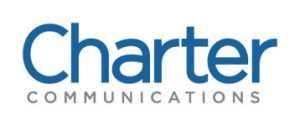 The public spiritedness of our underwriters allows us to bring Statehouse Report to you at no cost. Today, we’re happy to shine the spotlight on Charter Communications, the nation’s fastest-growing TV, internet and voice company. Committed to integrating the highest quality service with superior entertainment and communications products, Charter is at the intersection of technology and entertainment, facilitating essential communications that connect 24 million residential and business customers in 41 states, including South Carolina. In addition to being committed to giving back to the communities we serve, the bedrock of our business strategy is to serve our customers and exceed their expectations.
The public spiritedness of our underwriters allows us to bring Statehouse Report to you at no cost. Today, we’re happy to shine the spotlight on Charter Communications, the nation’s fastest-growing TV, internet and voice company. Committed to integrating the highest quality service with superior entertainment and communications products, Charter is at the intersection of technology and entertainment, facilitating essential communications that connect 24 million residential and business customers in 41 states, including South Carolina. In addition to being committed to giving back to the communities we serve, the bedrock of our business strategy is to serve our customers and exceed their expectations.
“We, at our core, are a service organization,” President and CEO Tom Rutledge says. “And every product we sell has a huge service component.”
- To learn more, visit Charter’s South Carolina services online.
MY TURN, Benjamin: 10 rules for winning the S.C. Democratic primary
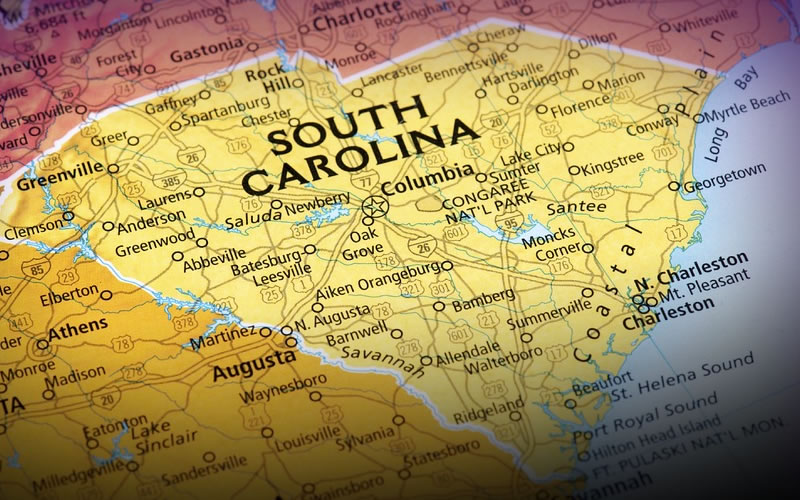
Editor’s note: Earlier this week, Columbia Mayor Steve Benjamin welcomed more than 200 political thinkers and activists to a forum hosted by a centrist Democratic think tank to broaden the party’s appeal ahead of the 2020 elections. Below are excerpted remarks from his speech.
By Steve Benjamin, special to Statehouse Report | Over the past 12 months, something has happened to me that I never would have suspected. I have met with 15 people running for President of the United States. For a kid who came to South Carolina for college, fell in love and stayed – that’s pretty cool stuff.
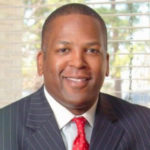
Now, I’m not naïve. I know it’s not my winning personality that is attracting all of these candidates. It’s winning South Carolina. We are the last of the early four primary and caucus states. We are the biggest delegate haul of the early four states. We come right before Super Tuesday. Three days after we vote, Alabama, Arkansas, Georgia, North Carolina, Tennessee and Virginia vote with their 461 delegates. And as South Carolina goes, so goes much of the South in Democratic primaries.
So for the 15 candidates who have already stopped by, the others who will stop by, for all of you in the media covering the race, and for everyone here concerned about electing a Democrat who can and will beat Donald Trump – here are ten rules for winning the South Carolina Democratic Primary.
Rule 1: There is a key word in South Carolina and it is “opportunity.”
Families want to know that they will have the opportunity to earn a good life right here in South Carolina. Families want to know our kids will have an opportunity to earn a good life right here in South Carolina.
People are concerned about bringing jobs here and being able to have the skills to qualify for those jobs. Many people feel disconnected with the promise —-that working hard is enough to achieve success. But they want to reconnect to that promise. They want a real shot at earning a good life.
Be affirmative, be positive, speak to our economic hopes, dreams, and needs. The key word is “opportunity.”
Rule 2: When you speak to our hopes, dreams and needs, et out of the ether and get to the kitchen table.
South Carolinians talk kitchen-table economics at home and in g neighborhoods. It’s about the cost of health care, the quality of schools, the quality of the roads and highways.
South Carolinians are realists and pragmatists. We want a president who will get something done and cares about getting something done, not just furthering an argument.
Rule 3: Don’t confuse black with liberal.
In South Carolina, if you’re African American there is a very high likelihood that you’re a Democrat. It does not mean liberal. Nearly two-thirds of the Democratic primary electorate here is African-American. They are center-left, center-center, and yes, even center-right.
Appeal to them from the middle out – on the economy, on the value of work, on responsible use of our tax dollars and even thoughtful consideration of the Second Amendment.

Rule 4: There are three types of barbecue in our state.
When you are in South Carolina, choose wisely. I’ll give you a hint, if you choose a barbecue that is tomato-based – you have not chosen wisely. If you choose a barbecue that tastes like brisket – you’re in the wrong state.
Rule 5: Trade matters here — a lot.
South Carolina is number 1 in foreign direct investment per capita from Europe. We have a massive trade relationship with Europe, with Taiwan, with Mexico and with China. The Port of Charleston is the lifeblood of the economy.
Trade wars aren’t good for us. Neither is protectionism. South Carolina is pro-trade, pro-Trans-Pacific Partnership, pro-globalization. We’re not protectionists.
Rule 6: Don’t forget rural South Carolina.
We are happy to have presidential hopefuls come through Charleston, Columbia and Greenville. But don’t neglect rural South Carolina. There are lots of good people and lots of votes there.
There are a dozen rural counties that voted for Clinton over Trump last time around. That is because much of South Carolina’s rural counties are majority black. There are 4,000 Democratic primary votes in Clarendon County, 13,000 in Orangeburg County, 5,000 in Williamsburg County, 4,000 in Marion County, 2,500 each in Jasper, Hampton, Chester and Marlboro counties.
You won’t reach them with your online pleas for donations or clever tweets. Half the voters in these counties don’t have broadband. One-quarter live in poverty. There’s no tax base to fund our schools. In some of these counties, only one in 10 has a college degree. More businesses are closing than opening. Many are disconnected from opportunity. And they need to be connected to opportunity.
They want hope and change.
Go there. Sit on a porch and have some incredibly sweet tea and talk to the people there. Tell them your plan to lift up people and communities. And listen to the people there. You’ll learn from them.
Rule 7: Don’t underestimate Palmetto Pride which means don’t shortchange Palmetto accomplishments.
![]() South Carolina is number 1. Of course, I could be talking about our Clemson Tigers who won the national football championship … again.
South Carolina is number 1. Of course, I could be talking about our Clemson Tigers who won the national football championship … again.
But we’re number 1 in something even more important than college football. The Darla Moore School of Business at the University of South Carolina is the number one international business school in America. There are big, positive, future-oriented successes happening in this state.
Candidates need to have a big, positive, future-oriented attitudes to win here. And South Carolinians have a lot of pride at how much of our economy is a 21st century economy.
Rule 8: Learn a bit of the language.
You don’t need to speak the language of South Carolina, but you should at least understand it.
-
- A “coke” is any kind of soft drink.
- “Frogmore stew” is not a stew and doesn’t have frogs. It means a “Lowcountry boil.” It’s a delicious meal you must try.
- A “fish fry” is about the best way any South Carolinian can spend their day.
- If someone says they “carried” a neighbor to the store, they are giving her a ride.
- If someone says, “Aren’t you precious!” you’re probably in trouble.
- “Y’all” is still the dominant gender neutral term
Rule 9: You are not in the Blue Bubble.
If you’re only getting your message out on Twitter, South Carolinians won’t hear you. If you’re only getting your message out on MSNBC, South Carolinians won’t hear you. If you killed it on a podcast, South Carolinians won’t hear you.
You’ve got to get into the churches, over to the fish fry’s, onto the porches.
Rule 10: I started with opportunity, I’ll end with opportunity.
There are a lot of success stories in South Carolina. Advanced manufacturing, trade and tourism. But the final rule is you have to understand that just like most of America, opportunity has become concentrated here.
Thirty-one of 46 counties lost jobs between 2000 and 2016. Thirty-one of 46 counties had fewer business up and running between 2000 and 2016.
A plan, a vision to bring opportunity to more people and more places, to help people without a college degree earn a good life … that will help you here and all throughout the Democratic South.
Columbia Mayor Steve Benjamin has served as president of the U.S. Conference of Mayors for the last year.
- Have a comment? Send to: feedback@statehousereport.com.
Hopes for review of election machine decision
To the editor:
![]() What Christe McCoy-Lawrence left unmentioned is the questionable relationship between the election official that “sold” this system and the chosen vendor. Hopefully, the other vendors who offered bids on replacing the system will challenge this dubious selection process and the bids can be reopened. Maybe on the second go around, the decision makers will choose the safer, less expensive alternative.
What Christe McCoy-Lawrence left unmentioned is the questionable relationship between the election official that “sold” this system and the chosen vendor. Hopefully, the other vendors who offered bids on replacing the system will challenge this dubious selection process and the bids can be reopened. Maybe on the second go around, the decision makers will choose the safer, less expensive alternative.
— Joy Campbell, Columbia, S.C.
Company wins
To the editor:
This decision (on new voting machines) is a loss for voters; a windfall for the vendor.
— Loretta Warden, Hilton Head Island, S.C.
Send us your thoughts … or rants
We love hearing from our readers and encourage you to share your opinions. But you’ve got to provide us with contact information so we can verify your letters. Letters to the editor are published weekly. We reserve the right to edit for length and clarity. Comments are limited to 250 words or less. Please include your name and contact information.
-
- Send your letters or comments to: feedback@statehousereport.com
Reaching
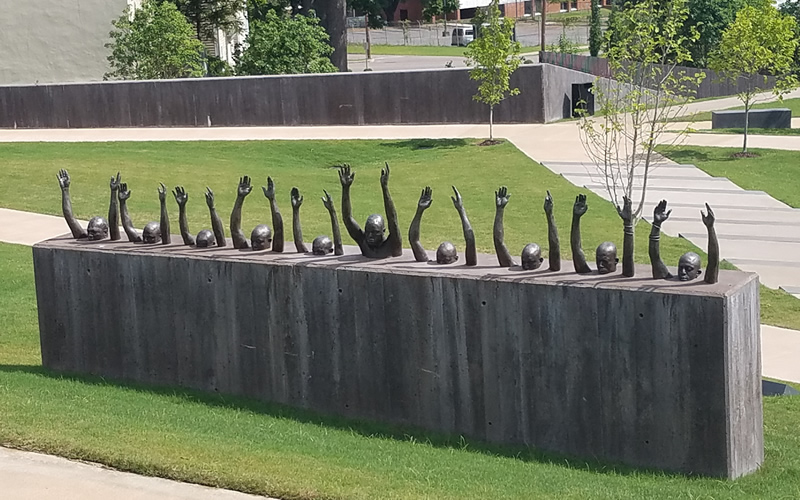
A friend sent along the above picture and we thought it would make a tough, but good, Mystery Photo. Your one hint: It’s somewhere in the South, but not South Carolina. Send your guess about the location of this photo to feedback@statehousereport.com. And don’t forget to include your name and the town in which you live.
Our previous Mystery Photo
 Our June 14 mystery, “Pretty rustic, huh?” was tougher than usual. It showed a bath house at Paris Mountain State Park near Greenville.
Our June 14 mystery, “Pretty rustic, huh?” was tougher than usual. It showed a bath house at Paris Mountain State Park near Greenville.
Only a few devoted sleuths correctly identified the mystery. Hats off to: George Graf of Palmyra, Va.; Jay Altman of Columbia; Dale Rhodes of Richmond, Va.; and Frank Bouknight of Summerville.
Graf provided this context: “According to bmwusplant.com, the Civilian Conservation Corps (CCC) originally built the 2,400-square-foot facility in the 1930s as a series of state parks emerged across South Carolina during the Great Depression and Franklin Roosevelt’s New Deal.
“The renovation is the result of an effort that began in 2001 with a meeting between Leadership Greenville and the S.C. State Park Service. The bathhouse was long used as a changing area and concessions building for swimmers and picnickers at the popular park. Now, to meet the changed needs of visitors, it will serve as the hub for all activities at Paris Mountain State Park, including registering campers, providing trail information, and interpretive programming on such topics as the aquatic environment in the mountainside park’s streams and ponds.”
- Send us a mystery: If you have a photo that you believe will stump readers, send it along (but make sure to tell us what it is because it may stump us too!) Send to: feedback@statehousereport.com and mark it as a photo submission. Thanks.
HISTORY: Eight Box Law
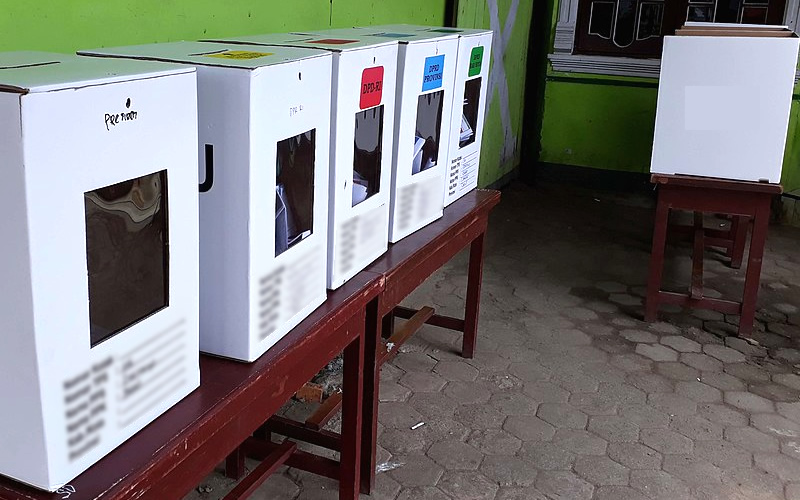
S.C. Encyclopedia | The Eight Box Law of 1882 was an election law designed to ensure white supremacy in South Carolina without violating the Fifteenth Amendment, which barred states from depriving their citizens of the vote on the basis of race. Even after the defeat of Reconstruction, Congress still enforced the amendment on several occasions; one such case in 1880 seated an African American candidate for Congress who had lost a fraudulent election. The genius of the Eight Box Law was to sidestep constitutional issues by making no reference to race; instead, African Americans would be deprived of their votes through discriminatory enforcement.
Largely the work of the attorney and legislator Edward McCrady, the law provided for separate ballot boxes for each of eight types of office, including, for example, state senator, state representative, congressman, governor, lieutenant governor, and other statewide offices. Any ballot cast in an incorrect box was disallowed. In an early draft of the law, the only way to identify the boxes was by labels written on them; thus the system served as an effective literacy test. In the final version, however, election managers were required, “on the demand of the voter,” to read the labels to the voter. This provision allowed for discriminatory enforcement: the election manager could read the correct labels to an illiterate white man but read incorrect labels to an illiterate black man. Such action would be a violation of state law, not federal law, and would be difficult to prove in court.
Many southern states during the 1880s and 1890s attempted to disenfranchise blacks by deception. South Carolina’s system of multiple ballot boxes was a unique innovation. Other provisions of the 1882 law, however, may have contributed at least as much to disfranchisement. In addition to the voting procedure described above, the law also established an extremely restrictive registration process.
The law was dramatically successful in fulfilling its intent: to maintain white supremacy without provoking intervention by the federal government. Whereas in 1880 as many as 58,000 blacks had voted in South Carolina, by 1888 the number was reduced to fewer than 14,000. This drastic reduction was accomplished despite less resort to fraud and violence by whites. The 1895 constitution reduced still further the number of black South Carolinians who managed to vote, but most of the work of disfranchisement had been accomplished by the 1882 law.
— Excerpted from an entry by Hyman S. Rubin III. This entry may not have been updated since 2006. To read more about this or 2,000 other entries about South Carolina, check out The South Carolina Encyclopedia, published in 2006 by USC Press. (Information used by permission.)
Available in paperbrack, err, paperback
 Now you can get a copy of editor and publisher Andy Brack’s We Can Do Better, South Carolina! ($14.99) as a paperback.
Now you can get a copy of editor and publisher Andy Brack’s We Can Do Better, South Carolina! ($14.99) as a paperback.
The book of essays offers incisive commentaries by editor and publisher Andy Brack on the American South, the common good and interesting South Carolina leaders, such as former U.S. Sen. Fritz Hollings, civil rights advocate Septima Clark, former S.C. Gov. David Beasley and more. There also are discussions on civil rights struggles with which the Palmetto State continues to grapple. as well as commentaries on politics, governments, the hangovers of South Carolina’s past and her future opportunities.
We Can Do Better, South Carolina! is also available exclusively as a Kindle book for $7.99. Click here to purchase a Kindle copy.
- If you have a comment or questions about the book, please let us know at: feedback@statehousereport.com.
Statehouse Report, founded in 2001 as a weekly legislative forecast that informs readers about what is going to happen in South Carolina politics and policy, is provided to you at no charge every Friday.
- Editor and publisher: Andy Brack, 843.670.3996
- Statehouse correspondent: Lindsay Street
More
- Mailing address: Send inquiries by mail to: P.O. Box 22261, Charleston, SC 29407
- Subscriptions are free: Click to subscribe.
- We hope you’ll keep receiving the great news and information from Statehouse Report, but if you need to unsubscribe, go to the bottom of the weekly email issue and follow the instructions.
- © 2019, Statehouse Report. All rights reserved.















